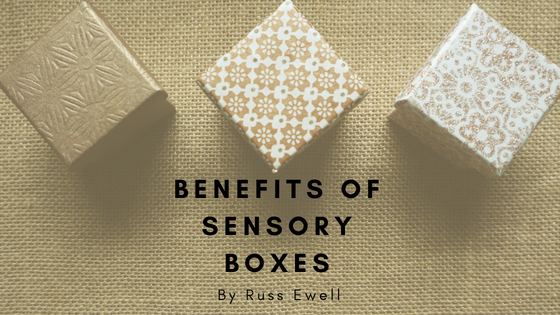Sensory boxes are boxes or bins, in which different types of tactile experiences can be contained. They are a relatively simple container and can be filled with a range of materials and items, including craft sand, water, rice, toys, fabrics, or just about anything else that can provide a safe tactile experience. Additionally, these materials are often paired with items with which they are able to interact with or alter the material, such as small containers, shovels, funnels, or other such objects.
Sensory boxes provide children with hands-on experiences involving the world and their senses in a safe and contained environment. Sensory play has many benefits, both short-term, and long-term, including the following:
Engage, Relax, or Focus Your Child
Some immediate benefits of a sensory box include engaging, relaxing, or focusing your child, depending on the type of the box, the type of their play, and their mood. You are presenting them with a contained space to experiment and interact with the sensory material, thus the opportunity to stimulate or focus their senses in a variety of ways by their own means and preferences.
Help Develop Play Skills
Sensory boxes are beneficial in developing play skills, as they provide a place to explore, discover, and interact without exposing them to necessarily unsafe or unconfined environments. They will have a fun place to proceed to anytime, inside or outside the house. In order to help your child develop play skills make sure you make the sensory box relevant to their interests and likes. If your child is very interested in dinosaurs, put some smooth rocks and plastic dinosaurs in the box to make it into a Jurassic terrain!
Understand Senses
Sensory boxes help children experience and come to understand their senses in a contained manner. They will be able to experiment with what they like and do not like, as well as engage and get to know their senses better in a contained and safe environment.
Develop Life Skills
Sensory boxes provide the foundation and opportunity for children to develop important life skills. For instance, they will develop an aptitude to explore and think creatively, or perhaps problem solved depending on the material and different interacting materials set up in the sensory box. They will also increase their ability to act and interact cooperatively if they are playing with the box in tandem with a parent, sibling, family member, or friends.

